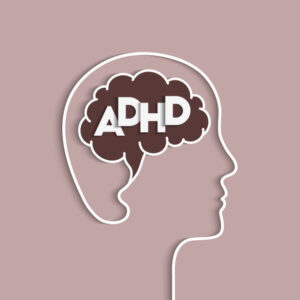Attention-Deficit/Hyperactivity Disorder (ADHD) is a condition that affects millions of individuals worldwide, impacting their ability to focus, organize, and manage tasks effectively. While ADHD presents unique challenges, it also comes with strengths that can be harnessed for success. With the right tools and strategies, individuals with ADHD can improve their focus, productivity, and overall quality of life.
Understanding ADHD
ADHD is characterized by symptoms of inattention, hyperactivity, and impulsivity. It can manifest differently in each person, leading to difficulties in academic, occupational, and social settings. While traditional approaches to managing ADHD often include medication and therapy, a holistic approach incorporating various tools and strategies can enhance focus and success.
Tools for Focus
Structured Routines
Establishing a consistent daily routine can provide a framework that helps individuals with ADHD navigate their day more effectively. By having a set schedule for waking up, meals, work, and leisure, it becomes easier to manage time and stay on task. Visual schedules, whether digital or on paper, can be particularly beneficial, allowing for easy reference and reminders.
Task Management Apps
In our digital age, technology offers a plethora of applications designed to assist with organization and time management. Apps like Todoist, Trello, and Asana can help individuals break tasks into manageable steps, set deadlines, and track progress. These tools can transform overwhelming projects into achievable goals.
Timers and the Pomodoro Technique
The Pomodoro Technique involves working in short bursts of focused activity (usually 25 minutes) followed by a short break (5 minutes). This method can help maintain focus and reduce the tendency to get distracted. Using timers, whether a physical timer or an app, can create a sense of urgency that fosters productivity.
Mind Mapping
Mind mapping is a visual brainstorming technique that can help individuals organize thoughts and ideas. By creating a visual representation of information, it becomes easier to see connections and prioritize tasks. This technique is particularly effective for individuals who think in a non-linear way, which is common among those with ADHD.
Environmental Adjustments
Creating a workspace that minimizes distractions is crucial for maintaining focus. This may involve decluttering the physical space, using noise-canceling headphones, or even playing background music that promotes concentration. Personalizing the workspace with items that inspire and motivate can also enhance productivity.
Strategies for Success
Setting Clear Goals
Establishing specific, measurable, achievable, relevant, and time-bound (SMART) goals can provide direction and motivation. Breaking larger goals into smaller, actionable steps can make tasks feel less daunting and more achievable.
Regular Breaks and Physical Activity
Incorporating regular breaks and physical activity into the daily routine can help combat restlessness and improve focus. Engaging in short bursts of exercise or stretching can stimulate the brain and increase alertness. Finding activities that are enjoyable, such as walking, dancing, or yoga, can make this a more sustainable practice.
Mindfulness and Meditation
Mindfulness practices, including meditation of ADHD and deep breathing exercises, can help individuals with ADHD cultivate greater awareness and control over their thoughts and impulses. Regular mindfulness practice can lead to improved attention, reduced anxiety, and a greater sense of calm.
Accountability Partners
Having an accountability partner can significantly enhance motivation and adherence to goals. This can be a friend, family member, or colleague who checks in regularly, provides support, and encourages progress. Sharing goals with someone else creates a sense of responsibility and can make the journey feel less isolating.
Seeking Professional Support
While self-help strategies are valuable, professional support from therapists, coaches, or ADHD specialists can provide tailored guidance and strategies. These professionals can help individuals develop coping mechanisms, improve organizational skills, and navigate challenges specific to their situation.
Embracing Strengths
Individuals with ADHD often possess unique strengths, including creativity, enthusiasm, and the ability to think outside the box. Emphasizing these qualities can lead to innovative solutions and success in various fields. By embracing their strengths and understanding their challenges, individuals can carve out paths that align with their abilities and passions.
Building a Supportive Environment
Creating an environment that fosters understanding and support is essential for individuals with ADHD. This includes open communication with family, friends, and colleagues about the challenges faced and the strategies that help. Support groups, whether in-person or online, can also provide a sense of community and shared experience, making the journey less lonely.
Conclusion
Navigating life with ADHD requires a combination of understanding, strategy, and support. While challenges are inherent in the condition, the right tools can help individuals harness their potential and thrive. By implementing structured routines, utilizing technology, embracing mindfulness, and seeking professional guidance, individuals with ADHD can improve their focus and achieve success in various aspects of life. Ultimately, recognizing and celebrating personal strengths can pave the way for a fulfilling and productive life, transforming challenges into opportunities for growth and achievement.




